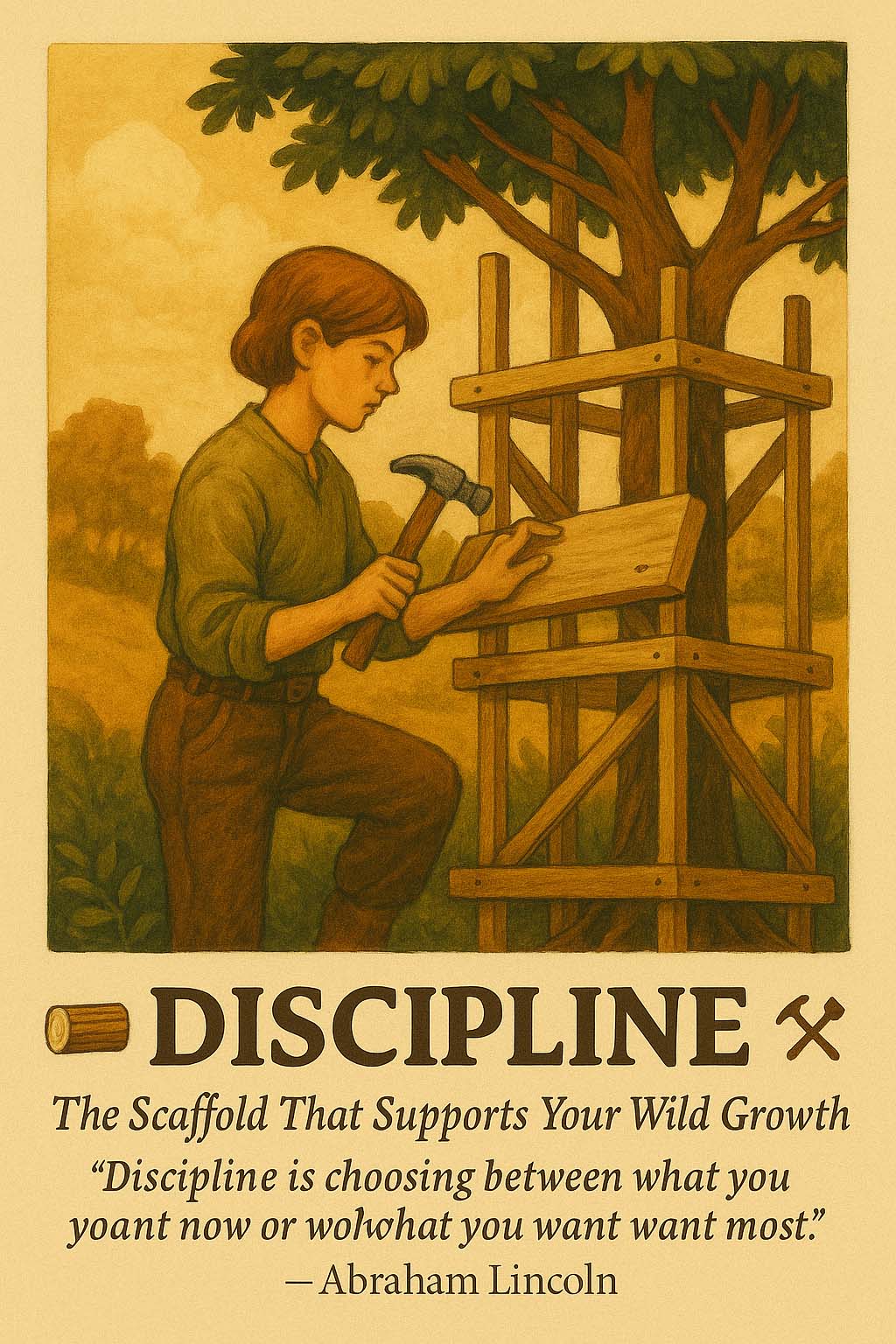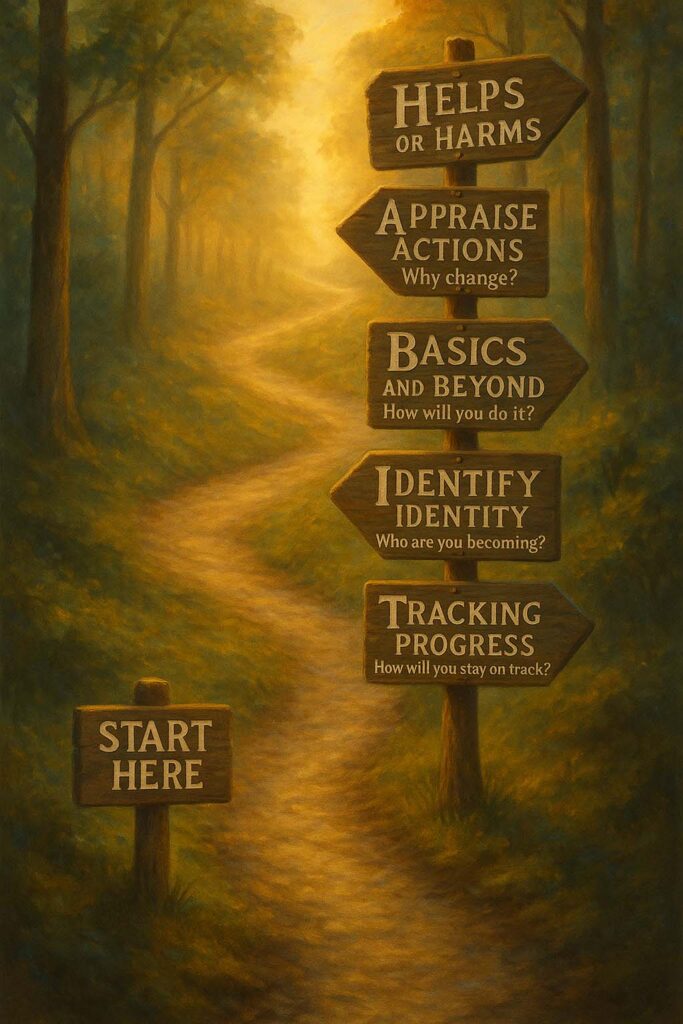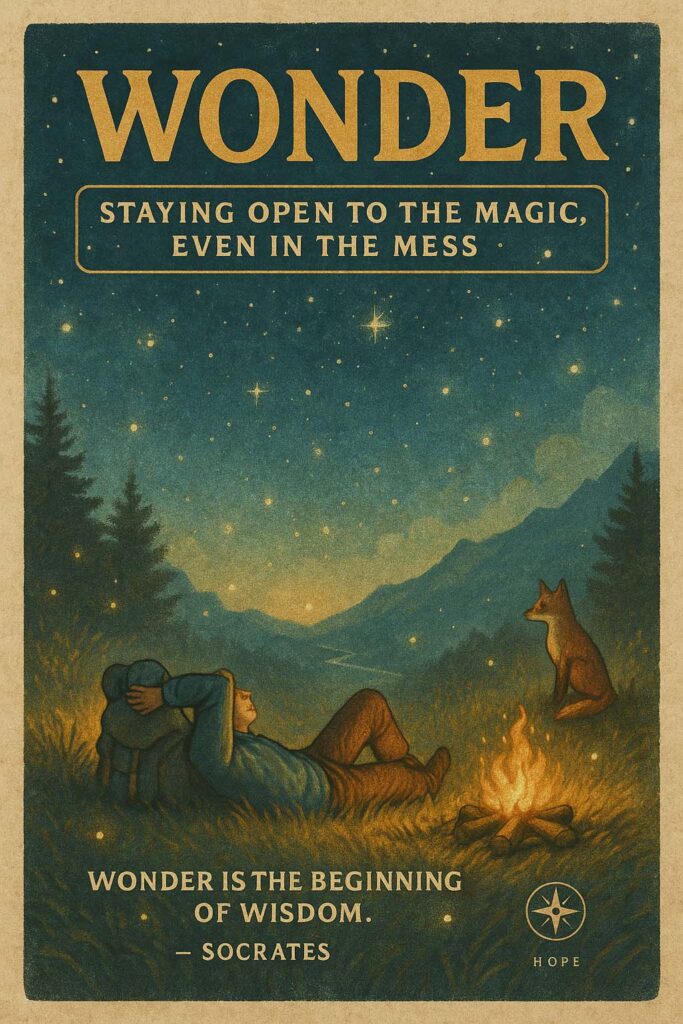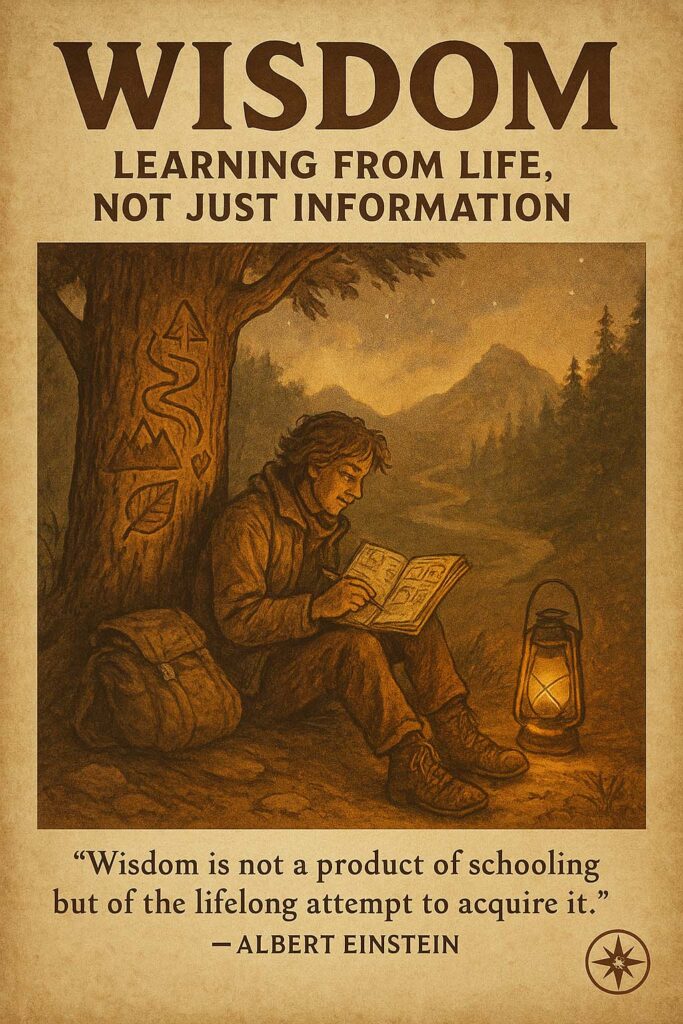
🪵 DISCIPLINE
“Discipline is choosing between what you want now and what you want most.” – Abraham Lincoln
Discipline, in the ADHD terrain, is not rigidity or punishment—it’s structure with soul. It’s the set of supports you build around yourself to help you reach the goals that matter most, even when your impulses pull you elsewhere. True discipline isn’t about force—it’s about aligning your actions with your values, over and over again.
For people with ADHD, the word “discipline” often brings a sting. Many of us have been told we lack it, as if it’s a fixed trait we’re missing. But ADHD brains aren’t undisciplined—they’re inconsistent. We care. We try. But executive function hurdles, emotional swings, and energy crashes make sustained focus a challenge.
Discipline becomes more sustainable when it’s compassionate and customized. When it grows from within, not imposed from without. It’s not about perfection—it’s about returning. When we see discipline not as self-denial but as self-alignment, it stops being a whip and starts being a walking stick.
This value helps us stay anchored when the trail gets disorienting. It allows us to break big dreams into small steps—and then take them, even if slowly. It says: “You don’t have to feel ready. You just need to be willing to return.”
🧭 The HOPE Trail Map
- Helps or Harms: Is this routine or rule helping me grow—or just punishing my inconsistency?
- Own My Values: I want to be someone who supports my goals with kind structure, not shame-based control.
- People and Pursuits: Who models discipline in a way that’s soft, sustainable, and real? What pursuit is worth sticking with—even when it’s hard?
- Enact and Evaluate: Today, I’ll revisit one routine or practice I’ve let go—not to catch up, but to re-engage with care.
⚠️ Trail Challenges
- ADHD’s inconsistent motivation makes follow-through hard to sustain.
- Harsh self-talk around “laziness” often damages long-term habit formation.
- Systems built for neurotypicals may feel unnatural or exhausting.
🪧 Trail Markers: Small Steps Toward Discipline
- Use the 7+ rule: Only commit to actions you feel 70% sure you can do.
- Pair a task you avoid with a comfort (music, light, scent, or snack).
- Reframe: “This is scaffolding for my growth”—not “I have to do this or I’ve failed.”
🔥 Campfire Questions for Reflection
- What would discipline look like if it were gentle instead of harsh?
- What helps me return to something, even after I’ve dropped it?
- Where have I shown discipline in unconventional but meaningful ways?
Discipline isn’t about controlling the wild—it’s about building something strong enough to let your wildness grow tall and free.



